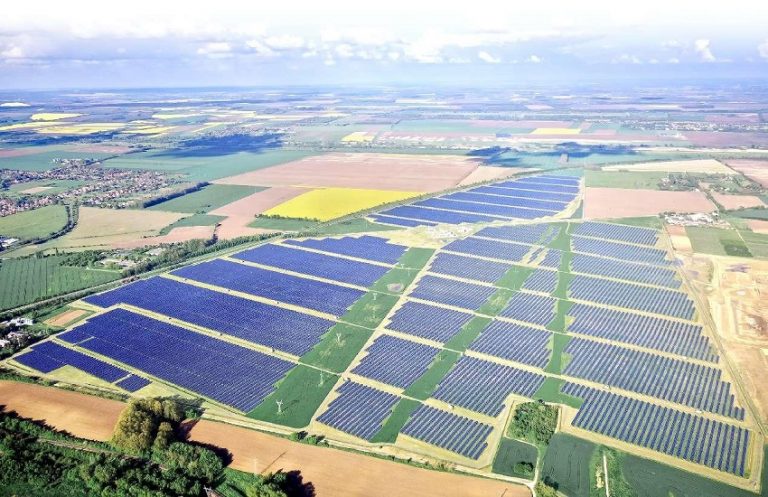
By He Yin, Today, countries around the world are facing the challenges brought by climate change. Over 130 countries and regions have set carbon neutrality targets, and developing new energy industries and achieving green and low-carbon transformation are common aspirations.
In Thailand, more and more people know Chinese electric vehicle brands and several Chinese car companies are expected to achieve localized production. In Kazakhstan, Chinese enterprises have turned wind into a resource, enabling the small town of Zhanatas with a population of only about 20,000 to catch up with the wave of new energy development. In Brazil, Chinese companies are investing in solar photovoltaic, onshore wind power, and hydropower projects, providing a stable source of clean electricity.
China’s continuous provision of high-quality new energy products is effectively promoting global green and low-carbon transformation.
China is an important participant, contributor, and trailblazer in the global climate governance process. It is also a significant producer of green products and a key engine driving global energy transformation.
China has been vigorously promoting the development of ecological civilization and actively developing the new energy industry, demonstrating its determination and action in addressing climate change.
The export of electric vehicles, lithium batteries, photovoltaic products, and more from China has not only enriched global supply and alleviated inflation but also provided significant support for countries to achieve carbon reduction goals and accelerate green transformation.
According to the International Energy Agency’s 2023 market report on renewable energy, global annual renewable capacity additions reached 510 gigawatts last year, growing at a faster rate than any other time in the past 30 years, and China was the largest driving force for the growth.
Data released by China’s National Energy Administration last year showed that over the past decade, China contributed over 40 percent to the growth in the world’s non-fossil energy consumption. In 2022, China’s exports of wind and solar power products helped other countries reduce carbon dioxide emissions by nearly 600 million tons.
World Meteorological Organization secretary-general Celeste Saulo pointed out that comprehensive participation from major countries like China is necessary in addressing climate change.
China adheres to open development and shares advanced green technologies with the world, significantly improving the accessibility of technology.
From a global perspective, green and low-carbon development is a major direction of innovation in energy technology. Through continuous research and efforts, China has become a global leader in several new energy technologies and equipment manufacturing. It has built the world’s largest clean power supply system, with its hydropower, wind power, solar power, and biomass capacities consistently ranking first in the world for years. China’s new energy generation technology is at the forefront globally, effectively driving down the costs of wind and solar power generation.
Tim Gould, chief energy economist at the International Energy Agency, said that China possesses unique advantages in the development and application of clean energy technologies. China has achieved fruitful results in several major engineering projects, providing strong technological support for global energy transformation.
China is actively promoting international cooperation in the field of new energy, aiming to build a new model of green and low-carbon energy transformation for mutual benefit.
So far, China’s overseas investment in non-fossil energy has surpassed that in fossil energy, leading to the successful completion of several landmark projects in clean, efficient, and high-quality green energy cooperation.
China is steadily advancing the development of a green Belt and Road and has engaged in green energy project cooperation with over 100 countries and regions, providing strong support for their green and low-carbon energy development.
China has proposed the Belt and Road Energy Partnership and has set up six regional energy cooperation platforms, promoting the establishment of global clean energy partnerships.
These efforts have played an important role in promoting global clean energy transformation and ensuring global energy security.
Erik Solheim, vice chairman of the Belt and Road Initiative International Green Development Coalition and former under-secretary-general of the United Nations, believes that China has made significant contributions to global renewable energy development, bringing innovation that drives economic development and green and low-carbon transformation to other developing countries.
China’s continuous provision of high-quality capacity in the new energy industry has made significant contributions to global green development, and it has been widely welcomed by the majority of countries worldwide.
China will continue to inject strong impetus into global clean energy development through its products, technologies, and solutions, thereby making greater contributions to countries in achieving green development and building a clean and beautiful world.










